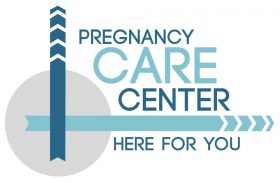Think you might be pregnant? While taking a pregnancy test is the first step to finding out, there are signs you can look out for that may indicate you’re pregnant.
This article will highlight the top 7 pregnancy symptoms to look out for. However, if you’re looking for free pregnancy testing and a follow-up ultrasound, contact us today for your confidential appointment.
1. Missed Period
A missed period is one of the earliest and most significant signs of pregnancy. If your menstrual cycle is regular and your period is late, it might be time to consider taking a pregnancy test.
However, other factors, such as stress, hormonal imbalances, or changes in routine, can also cause a missed period.
2. Nausea With/Without Vomiting
Nausea, commonly known as morning sickness, can occur at any time of the day and is a hallmark of early pregnancy. It usually begins around the sixth week and is thought to be triggered by rising hormone levels.
While some women experience only mild nausea, others may deal with more severe symptoms, including vomiting, throughout the entire pregnancy.
3. Breast Changes
Early pregnancy often brings noticeable changes to your breasts. You may experience tenderness, swelling, or a tingling sensation.
The areolas (the area around your nipples) may also darken and become more pronounced. These changes are your body’s way of preparing for breastfeeding.
4. Fatigue
Feeling unusually tired is another common early symptom of pregnancy. The increase in the hormone progesterone during pregnancy can cause you to feel more fatigued than usual, even early on.
If you’re finding it hard to stay awake, you could be pregnant—especially if other pregnancy symptoms accompany your fatigue.
5. Frequent Urination
Hormonal changes and increased blood flow to the kidneys during early pregnancy can cause you to urinate more frequently. As your pregnancy progresses, this symptom may continue as the growing uterus puts additional pressure on your bladder.
6. Food Aversions and Cravings
Changes in your sense of taste and smell can lead to food aversions or cravings. You may find that certain foods you once enjoyed are now unappealing while you develop a strong desire for others.
7. Mood Swings
Hormonal fluctuations during early pregnancy can lead to mood swings. You might feel more emotional, anxious, or irritable than usual. These mood changes are common as your body adjusts to the new hormone levels.
Get Answers Today
Worrying about whether you’re pregnant can be overwhelming, but we’re here to give you the answers you need. Contact us today to schedule your free pregnancy testing and ultrasound appointment.
